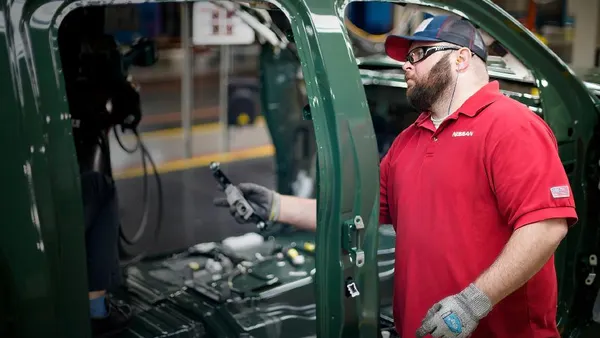Dive Brief:
- GE is redesigning products, using dual sources and expanding factory capacity as its healthcare unit battles semiconductor shortages and other supply chain challenges disrupting the entire medtech industry, CEO Larry Culp told investors on a Tuesday earnings call.
- The supply chain hit to the conglomerate's healthcare division was the biggest of any business unit, Culp said. The CEO described the company's supply chain challenges as the worst of his career and said the healthcare unit will continue to proactively manage sourcing and logistics.
- GE expects disruptions to last through at least the first half of 2022, with Culp saying key suppliers of electronic components are forecasting the issue will be "at least a two, three quarter challenge." The CEO said managing supply chain disruptions has been "akin to playing Whac-A-Mole."
Dive Insight:
GE Healthcare is the latest medtech firm to take a supply chain hit, coming after AdvaMed late last month published a study showing that the ongoing global semiconductor chip shortage is causing delays, order cancellations and other supply disruptions for medical device companies.
The medtech lobby is pushing the Biden administration, Congress and semiconductor manufacturers to prioritize the supply of chips to medical device manufacturers over other industries that use the same components. Medical equipment product company ResMed, for example, cited the shortage of semiconductors as a reason it will be unable to meet surging demand for its sleep apnea devices.
The CEO said he wished the healthcare unit's third-quarter earnings announcement "weren't as much of a camouflaged headline" due to supply chain issues. However, Culp maintained that the division is a strong business and was optimistic about its longer-term prospects.
Despite its supply chain challenges, GE CFO Carolina Dybeck Happe told investors on the call that GE Healthcare's organic margins are now expected to expand close to 100 basis points this year as the company "proactively manages sourcing and logistics."
Still, the company expects to battle shortages and other supply chain challenges well into next year.
"Based on broader industry trends, we expect company-wide pressure to continue at least into the first half of next year," Culp told investors on Tuesday. "I'm not sure we're yet in a place where we would say that things are stable."















